News
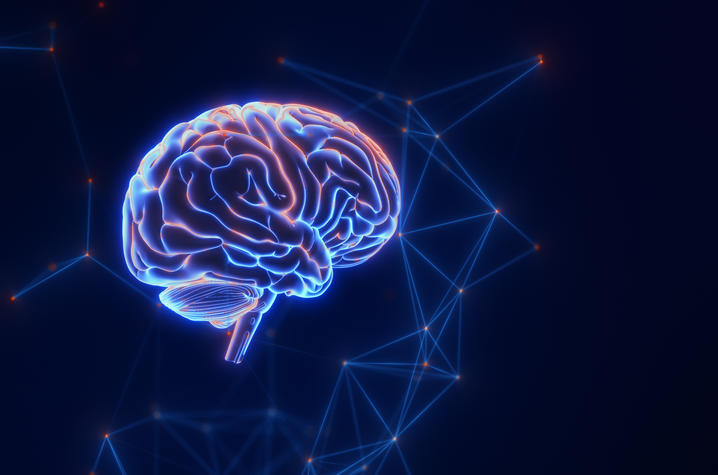
The 15th annual Markesbery Symposium on Aging and Dementia, an educational event for both the scientific community and the public, will take place Oct. 31-Nov. 1, 2025. The scientific session will be held at the Gatton Student Center at the University of Kentucky, and the community session will be held at the Central Bank Center. The community session is free and open to the public.

M. Paul Murphy, PhD, professor of molecular and cellular biochemistry and researcher at the UK Sanders-Brown Center on Aging, has been appointed chair of the Chronic Dysfunction and Integrative Neurodegeneration (CDIN) study section for the National Institutes of Health (NIH).
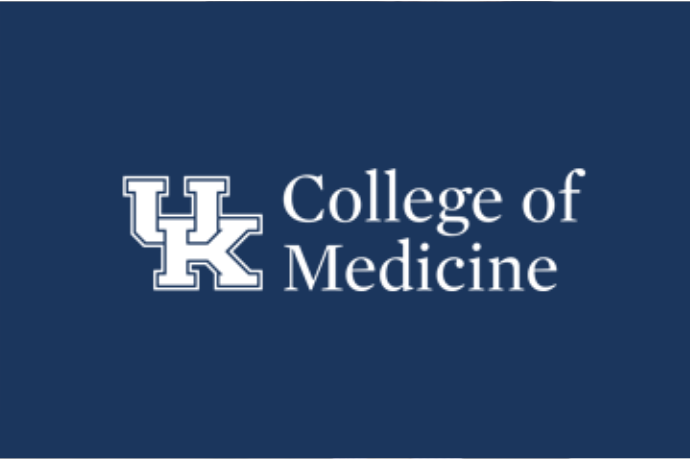
Watch Episodes of "Rewire Not Retire" on KET. Host Renee Shaw examines the reasons why older workers are choosing to stay in the workforce longer or re-entering after retirement. Experts provide advice on the resources and programs available to assist seniors in finding or retaining employment, as well as discussing the advantages of an intergenerational workplace.
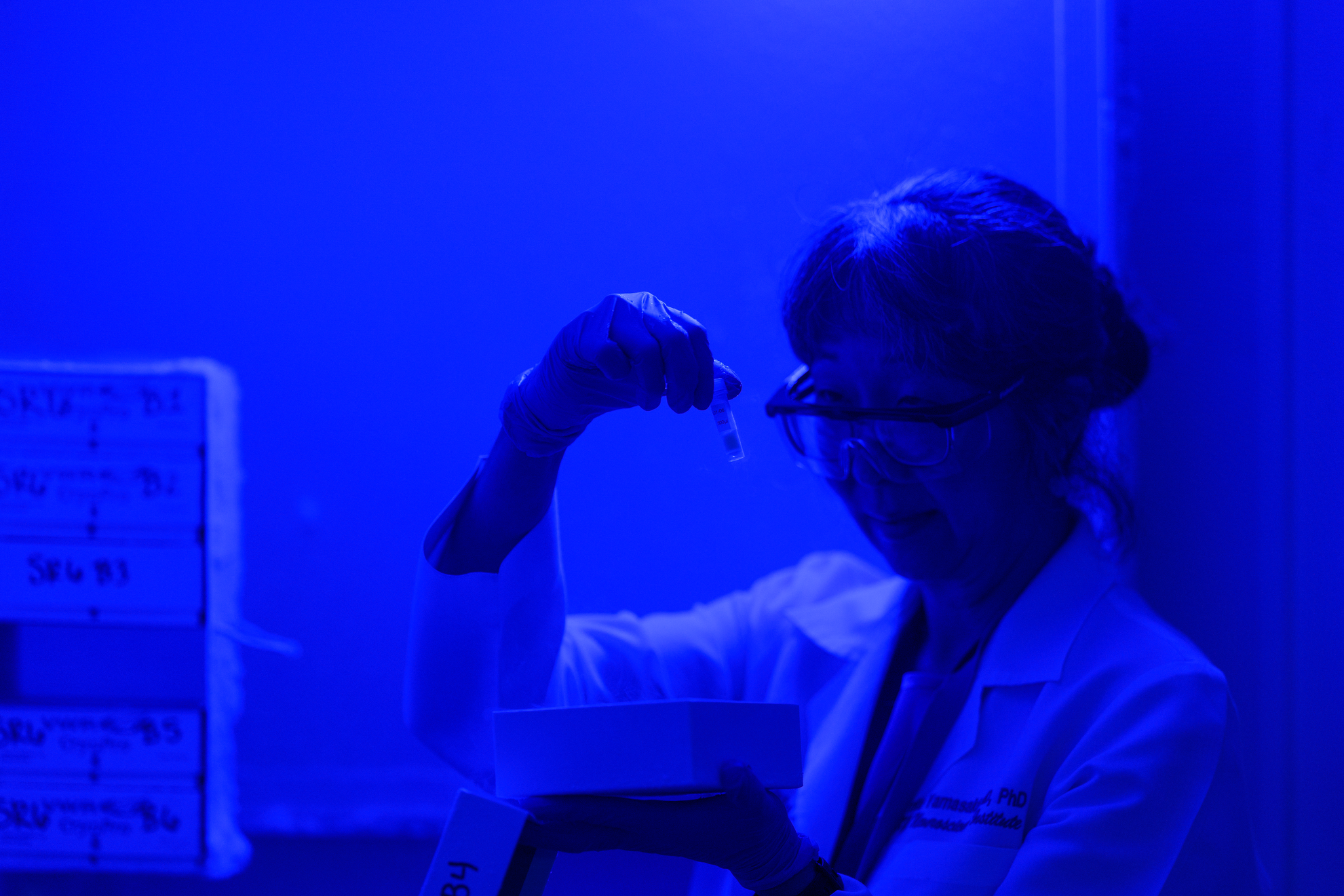
At the foundation of UK’s Neuroscience Research Priority Area (NRPA) is the belief that an environment that allows for dedicated research time and fosters teamwork also enhances problem-solving, accelerates learning, promotes creativity and builds stronger relationships, said Linda Van Eldik, PhD, NRPA co-director, co-director of KNI and director of the UK Sanders-Brown Center on Aging.
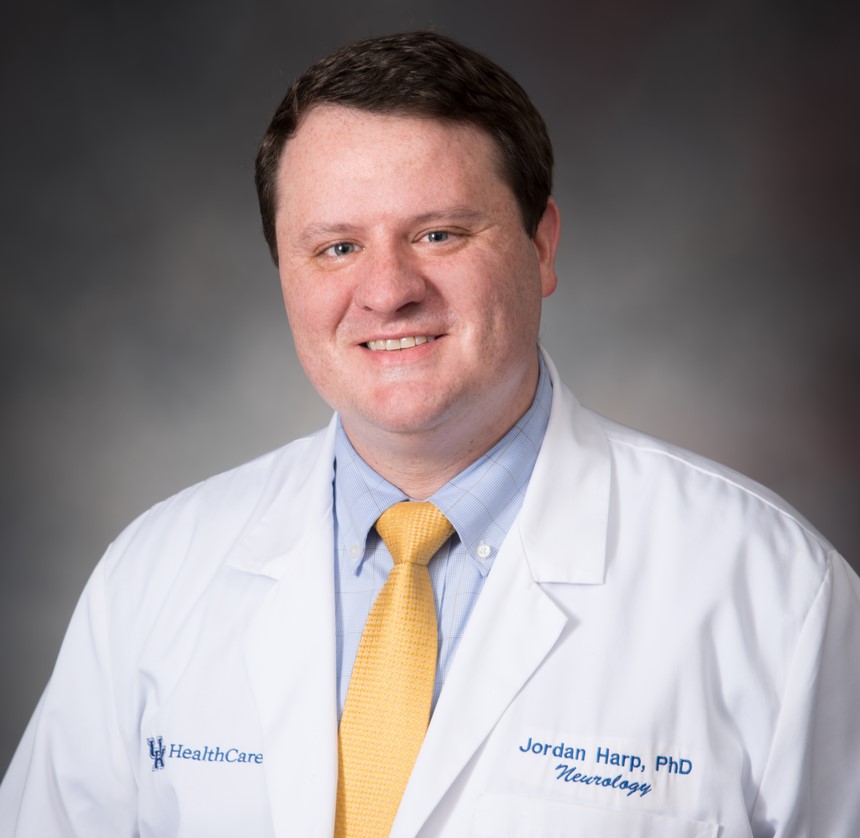
Up to one-third of stroke survivors go on to develop dementia and cognitive impairment. And in rural Appalachia, the numbers are even higher. But is it possible to predict, at the time of a stroke, who will have the best cognitive recovery?

By Sarah Ladd
Kentucky advocates for people with Alzheimer’s are excited by new research showing that lifestyle interventions like exercising and learning can slow cognitive decline.
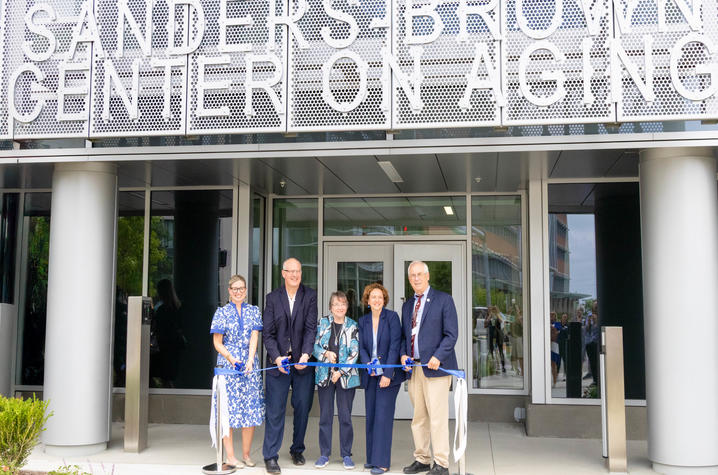
The University of Kentucky Sanders-Brown Center on Aging hosted a ribbon-cutting ceremony to celebrate the grand reopening of its newly renovated research facilities, marking a major milestone in the center’s decades-long mission to advance brain health and aging research.
M. Paul Murphy, PhD, professor in the Department of Molecular and Cellular Biochemistry in the UK College of Medicine, has been honored as a 2025-26 University Research Professor.
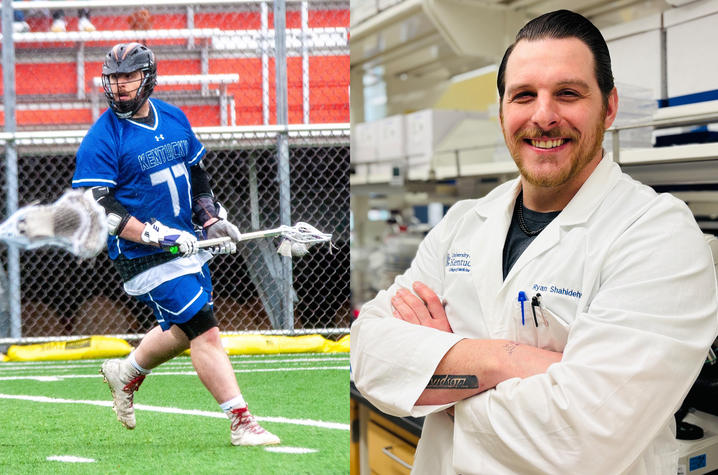
Before donning a lab coat at the University of Kentucky’s Sanders-Brown Center on Aging, Ryan Shahidehpour, PhD, was lacing up boxing gloves and facing off in competitive lacrosse matches. With more than 250 fights under his belt, Shahidehpour built a reputation for discipline, focus and resilience—qualities that now serve him just as well at the lab bench as they once did in the ring.
Three University of Kentucky College of Medicine students recently took their passion for Alzheimer’s advocacy to the nation’s capital, meeting with lawmakers to champion research, education, and access to care for those impacted by dementia. The trio traveled to Washington, D.C., as volunteer advocates with the Alzheimer’s Impact Movement (AIM) Advocacy Forum.
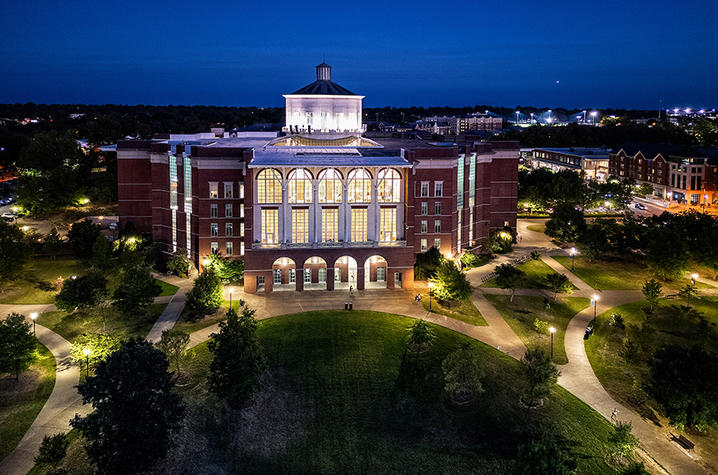
The University of Kentucky is well-represented on a list of the most-cited researchers in the world. In a database compiled by Stanford University in a partnership with Elsevier, 136 current UK scientists and scholars appear among the top 2% of the most-cited researchers across 22 disciplines.

Read the Magazine
Participating in brain-stimulating activities is essential to those dealing with Alzheimer's disease, but due to a lack of nearby resources and potential ambulatory issues, many Kentuckians in need of memory care do not have access to the help they need.
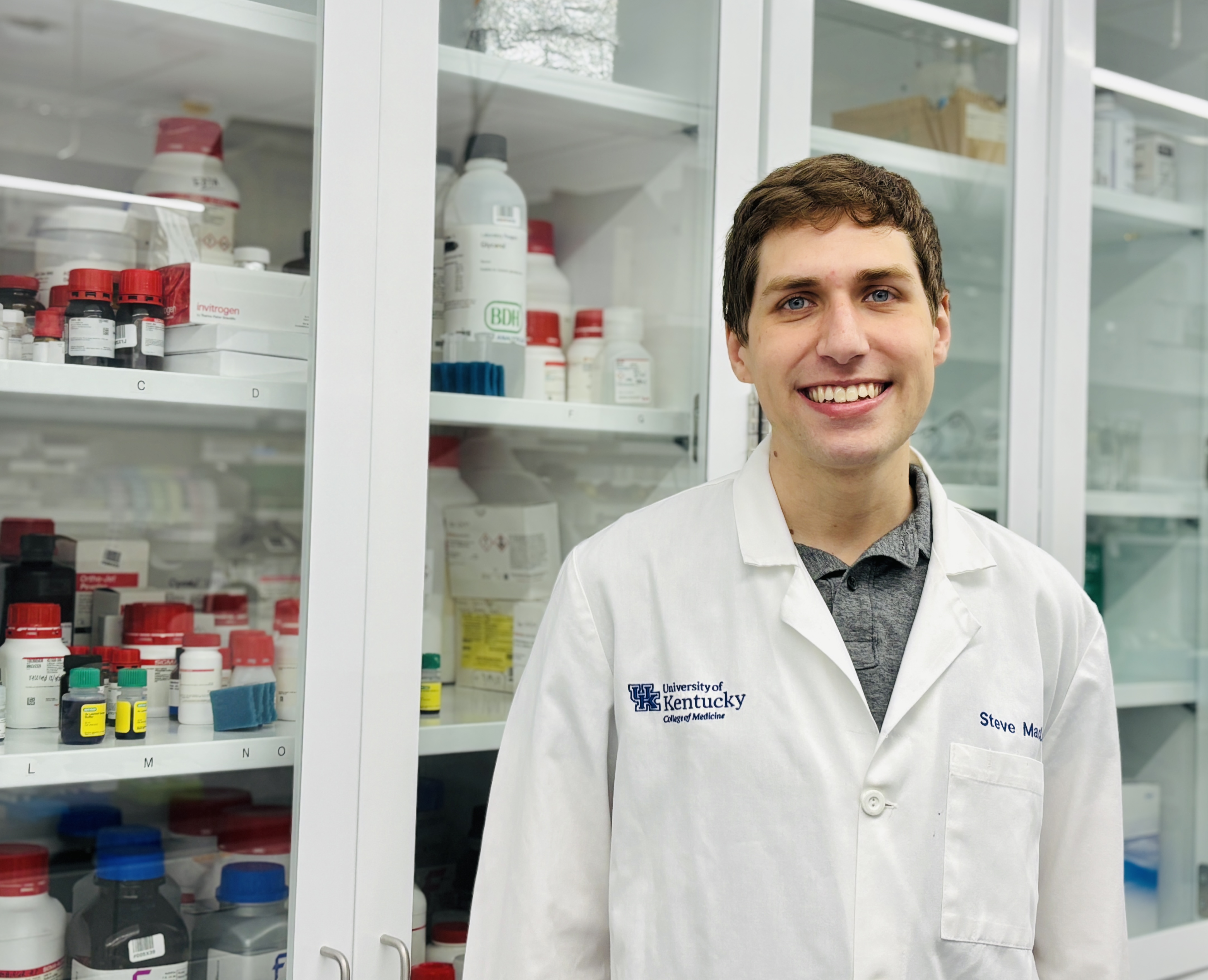
My name is Steve MacLean, and I am a fourth-year graduate student in the department of physiology. I am originally from Beverly Hills, Michigan, and pursued my bachelor’s degree at Central Michigan University. I first came to the University of Kentucky in 2019 as a lab technician under John Gensel, PhD, where I worked for two years studying spinal cord injury.
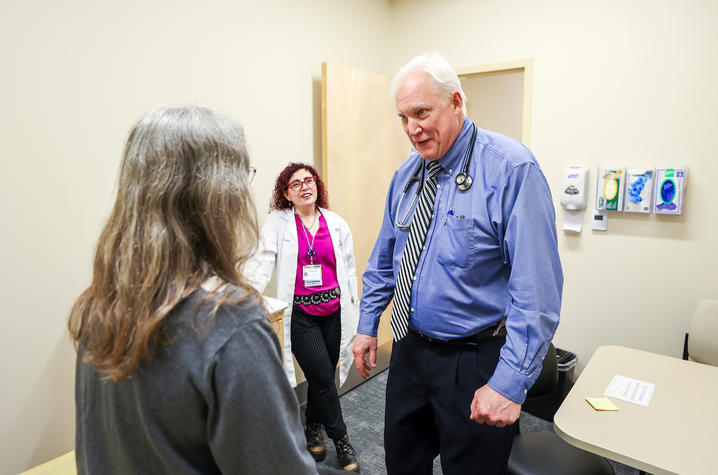
Today is International Clinical Trials Day, which “recognizes the invaluable contributions of clinical research professionals who drive innovation, uphold patient safety and push the boundaries of discovery,” according to the Society of Clinical Research Associates. The date, May 20, commemorates the day that James Lind began the first randomized clinical trial in 1747.
Researchers at the University of Kentucky play an important role in advancing the health, well-being and future of our Commonwealth.
Much of that work is done with support from the National Institutes of Health (NIH). That support allows our researchers to find answers to many of the critical health issues facing Kentuckians.

Tuesday, May 20, is Clinical Trials Day, a global day of recognition for the researchers, clinicians, staff, learners, and community members who make groundbreaking discoveries a reality through clinical trials.

For the past four decades, the University of Kentucky’s Sanders-Brown Center on Aging (SBCoA) has been at the forefront of Alzheimer’s disease research, making groundbreaking discoveries that have shaped our understanding of this complex condition.

Researchers at the University of Kentucky play an important role in advancing the health, well-being and future of our Commonwealth.
Much of that work is done with support from the National Institutes of Health (NIH). That support allows our researchers to find answers to many of the critical health issues facing Kentuckians.

Researchers at the University of Kentucky play an important role in advancing the health, well-being, and future of our Commonwealth.
Much of that work is done with support from the National Institute of Health (NIH), which allows our researchers to find answers to many of the critical health issues facing Kentuckians.
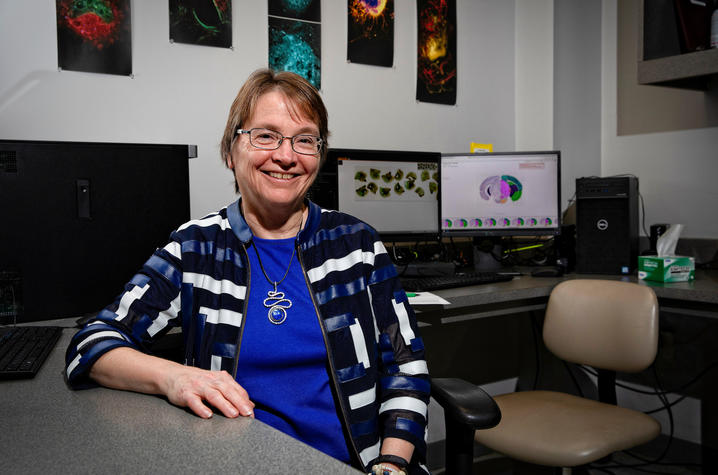
Researchers at the University of Kentucky play an important role in advancing the health, well-being and future of our Commonwealth.
Much of that work is done with support from the National Institutes of Health (NIH). That support allows our researchers to find answers to many of the critical health issues facing Kentuckians.